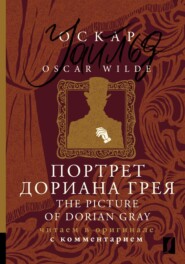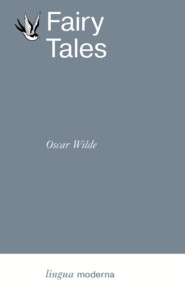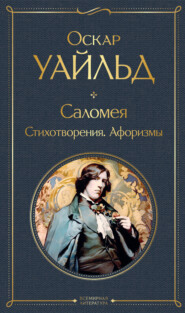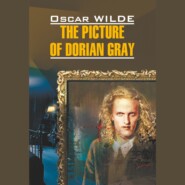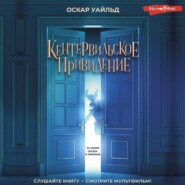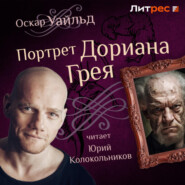По всем вопросам обращайтесь на: info@litportal.ru
(©) 2003-2024.
✖
Oscar Wilde’s Stories for All Ages
Настройки чтения
Размер шрифта
Высота строк
Поля
‘But where is your little companion?’ he said: ‘the boy I put into the tree.’ The Giant loved him the best because he had kissed him.
‘We don’t know,’ answered the children; ‘he has gone away.’
‘You must tell him to be sure and come here tomorrow,’ said the Giant. But the children said that they did not know where he lived, and had never seen him before; and the Giant felt very sad.
Every afternoon, when school was over, the children came and played with the Giant. But the little boy whom the Giant loved was never seen again. The Giant was very kind to all the children, yet he longed for his first little friend, and often spoke of him. ‘How I would like to see him!’ he used to say.
Years went over, and the Giant grew very old and feeble. He could not play about any more, so he sat in a huge armchair, and watched the children at their games, and admired his garden. ‘I have many beautiful flowers,’ he said; ‘but the children are the most beautiful flowers of all.’
One winter morning he looked out of his window as he was dressing. He did not hate the Winter now, for he knew that it was merely the Spring asleep, and that the flowers were resting.
Suddenly he rubbed his eyes in wonder, and looked and looked. It certainly was a marvellous sight. In the farthest corner of the garden was a tree quite covered with lovely white blossoms. Its branches were all golden, and silver fruit hung down from them, and underneath it stood the little boy he had loved.
Downstairs ran the Giant in great joy, and out into the garden. He hastened across the grass, and came near to the child. And when he came quite close his face grew red with anger, and he said, ‘Who hath dared to wound thee?’ For on the palms of the child’s hands were the prints of two nails, and the prints of two nails were on the little feet.
‘Who hath dared to wound thee?’ cried the Giant; ‘tell me, that I may take my big sword and slay him.’
‘Nay!’ answered the child; ‘but these are the wounds of Love.’
‘Who art thou?’ said the Giant, and a strange awe fell on him, and he knelt before the little child.
And the child smiled on the Giant, and said to him, ‘You let me play once in your garden, today you shall come with me to my garden, which is Paradise.’
And when the children ran in that afternoon, they found the Giant lying dead under the tree, all covered with white blossoms.
THE REMARKABLE ROCKET (#ulink_52d86a62-f65f-5121-873f-884dca430c36)
Introduction (#ulink_d78ba6ed-b3b8-5aae-9b3f-78d5f8240d1d)
The Remarkable Rocket is written in the comic style Wilde made famous: it is a story crammed with satirical observations, paradoxes, epigrams and—if you’ll forgive the pun—squibs.
Hubris, pomposity, vanity, the glamour and egotism of youth, I suppose these could be said to be the subject and the targets of the satire, but it is all worn very lightly. Oscar’s unhappy trial, imprisonment and exile might lead some to think that he was a remarkable rocket himself—that meteoric rise, the brilliant shower of wit and then the shocking explosion and calamitous fall to the muddy ground. At the height of his fame and fortune Wilde knew all too well how much people would like to see him fail. He knew all too well how shallow and facile they believed him to be. He probably agreed that at times his life was shallow and facile. When writers write moral tales they write them chiefly to instruct not others but themselves, just as we are nearly always talking to ourselves when we give sage advice to our friends. I therefore like to think of Oscar as being both the subject and the object of this story.
Fortunately, Wilde’s sad, painful and lonely death was followed, as decade followed decade, by an increase in his reputation. The height he has reached since his death is greater and the trail in the sky clearer than ever they were in his short and blighted lifetime.
THE REMARKABLE ROCKET (#ulink_f24c640f-8949-5cc7-b6d3-0451cc0eb72c)
THE KING’S SON was going to be married, so there were general rejoicings. He had waited a whole year for his bride, and at last she had arrived. She was a Russian Princess, and had driven all the way from Finland in a sledge drawn by six reindeer. The sledge was shaped like a great golden swan, and between the swan’s wings lay the little Princess herself. Her long ermine-cloak reached right down to her feet, on her head was a tiny cap of silver tissue, and she was as pale as the Snow Palace in which she had always lived. So pale was she that as she drove through the streets all the people wondered. ‘She is like a white rose!’ they cried, and they threw down flowers on her from the balconies.
At the gate of the Castle the Prince was waiting to receive her. He had dreamy violet eyes, and his hair was like fine gold. When he saw her he sank upon one knee, and kissed her hand.
‘Your picture was beautiful,’ he murmured, ‘but you are more beautiful than your picture’; and the little Princess blushed.
‘She was like a white rose before,’ said a young Page to his neighbour, ‘but she is like a red rose now’; and the whole Court was delighted.
For the next three days everybody went about saying, ‘White rose, Red rose, Red rose, White rose’; and the King gave orders that the Page’s salary was to be doubled. As he received no salary at all this was not of much use to him, but it was considered a great honour, and was duly published in the Court Gazette.
When the three days were over the marriage was celebrated. It was a magnificent ceremony, and the bride and bridegroom walked hand in hand under a canopy of purple velvet embroidered with little pearls. Then there was a State Banquet, which lasted for five hours. The Prince and Princess sat at the top of the Great Hall and drank out of a cup of clear crystal. Only true lovers could drink out of this cup, for if false lips touched it, it grew grey and dull and cloudy.
‘It’s quite clear that they love each other,’ said the little Page, ‘as clear as crystal!’ and the King doubled his salary a second time. ‘What an honour!’ cried all the courtiers.
After the banquet there was to be a Ball. The bride and bridegroom were to dance the Rose-dance together, and the King had promised to play the flute. He played very badly, but no one had ever dared to tell him so, because he was the King. Indeed, he knew only two airs, and was never quite certain which one he was playing; but it made no matter, for, whatever he did, everybody cried out, ‘Charming! charming!’
The last item on the programme was a grand display of fireworks, to be let off exactly at midnight. The little Princess had never seen a firework in her life, so the King had given orders that the Royal Pyrotechnist should be in attendance on the day of her marriage.
‘What are fireworks like?’ she had asked the Prince, one morning, as she was walking on the terrace.
‘They are like the Aurora Borealis,’ said the King, who always answered questions that were addressed to other people, ‘only much more natural. I prefer them to stars myself, as you always know when they are going to appear, and they are as delightful as my own flute-playing. You must certainly see them.’
So at the end of the King’s garden a great stand had been set up, and as soon as the Royal Pyrotechnist had put everything in its proper place, the fireworks began to talk to each other.
‘The world is certainly very beautiful,’ cried a little Squib. ‘Just look at those yellow tulips. Why! if they were real crackers they could not be lovelier. I am very glad I have travelled. Travel improves the mind wonderfully, and does away with all one’s prejudices.’
‘The King’s garden is not the world, you foolish squib,’ said a big Roman Candle; ‘the world is an enormous place, and it would take you three days to see it thoroughly.’
‘Any place you love is the world to you,’ exclaimed a pensive Catherine Wheel, who had been attached to an old deal box in early life, and prided herself on her broken heart; ‘but love is not fashionable any more, the poets have killed it. They wrote so much about it that nobody believed them, and I am not surprised. True love suffers, and is silent. I remember myself once—but it is no matter now. Romance is a thing of the past.’
‘Nonsense!’ said the Roman Candle, ‘Romance never dies. It is like the moon, and lives for ever. The bride and bridegroom, for instance, love each other very dearly. I heard all about them this morning from a brown-paper cartridge, who happened to be staying in the same drawer as myself, and knew the latest Court news.’
‘The King’s garden is not the world, you foolish squib,’ said a big Roman Candle; ‘the world is an enormous place, and it would take you three days to see it thoroughly.’
But the Catherine Wheel shook her head. ‘Romance is dead, Romance is dead, Romance is dead,’ she murmured. She was one of those people who think that, if you say the same thing over and over a great many times, it becomes true in the end.
Suddenly, a sharp, dry cough was heard, and they all looked round.
It came from a tall, supercilious-looking Rocket, who was tied to the end of a long stick. He always coughed before he made any observation, so as to attract attention.
‘Ahem! ahem!’ he said, and everybody listened except the poor Catherine Wheel, who was still shaking her head, and murmuring, ‘Romance is dead.’
‘Order! order!’ cried out a Cracker. He was something of a politician, and had always taken a prominent part in the local elections, so he knew the proper Parliamentary expressions to use.
‘Quite dead,’ whispered the Catherine Wheel, and she went off to sleep.
As soon as there was perfect silence, the Rocket coughed a third time and began. He spoke with a very slow, distinct voice, as if he was dictating his memoirs, and always looked over the shoulder of the person to whom he was talking. In fact, he had a most distinguished manner.
‘How fortunate it is for the King’s son,’ he remarked, ‘that he is to be married on the very day on which I am to be let off. Really, if it had been arranged beforehand, it could not have turned out better for him; but, Princes are always lucky.’
‘Dear me!’ said the little Squib, ‘I thought it was quite the other way, and that we were to be let off in the Prince’s honour.’
‘It may be so with you,’ he answered; ‘indeed, I have no doubt that it is, but with me it is different. I am a very remarkable Rocket, and come of remarkable parents. My mother was the most celebrated Catherine Wheel of her day, and was renowned for her graceful dancing. When she made her great public appearance she spun round nineteen times before she went out, and each time that she did so she threw into the air seven pink stars. She was three feet and a half in diameter, and made of the very best gunpowder. My father was a Rocket like myself, and of French extraction. He flew so high that the people were afraid that he would never come down again. He did, though, for he was of a kindly disposition, and he made a most brilliant descent in a shower of golden rain. The newspapers wrote about his performance in very flattering terms. Indeed, the Court Gazette called him a triumph of Pylotechnic art.’
‘Pyrotechnic, Pyrotechnic, you mean,’ said a Bengal Light; ‘I know it is Pyrotechnic, for I saw it written on my own canister.’
‘Well, I said Pylotechnic,’ answered the Rocket, in a severe tone of voice, and the Bengal Light felt so crushed that he began at once to bully the little squibs, in order to show that he was still a person of some importance.
‘I was saying,’ continued the Rocket, ‘I was saying—what was I saying?’
‘You were talking about yourself,’ replied the Roman Candle.







